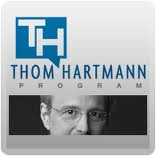 The Central Intelligence Agency has been bribing AT&T to help them spy on international communications. According to a new report in the New York Times, the CIA has been paying that company $10 million dollars a year for access to their overseas metadata. By accessing that data, the CIA is spying on private communications, including the date and length of calls, and the phone numbers involved, all without a warrant.
The Central Intelligence Agency has been bribing AT&T to help them spy on international communications. According to a new report in the New York Times, the CIA has been paying that company $10 million dollars a year for access to their overseas metadata. By accessing that data, the CIA is spying on private communications, including the date and length of calls, and the phone numbers involved, all without a warrant.
Although the CIA claims that only foreign-to-foreign call data is being collected, they admit that calls made to and from the US to another country are also included. AT&T claims that they've imposed strict privacy safeguards to protect Americans, like masking several digits of a phone number and withholding the identity of any numbers from the United States. However, if the CIA wants that information, they simply ask the FBI to issue a subpoena and force AT&T to hand over the details.
Essentially, our tax dollars are being used to bribe a private, for-profit company to help the government spy on foreign citizens. And in the process, Americans' private communication data can be collected. After all the NSA spying scandals, it's hard to believe that this isn't simply another program that the government uses to violate our Fourth Amendment rights. To add insult to injury, we're the ones paying yet another for-profit company to hand our private information over to the government.
Is the CIA bribing AT&T to spy on foreign citizens?
By Thom Hartmann A...



